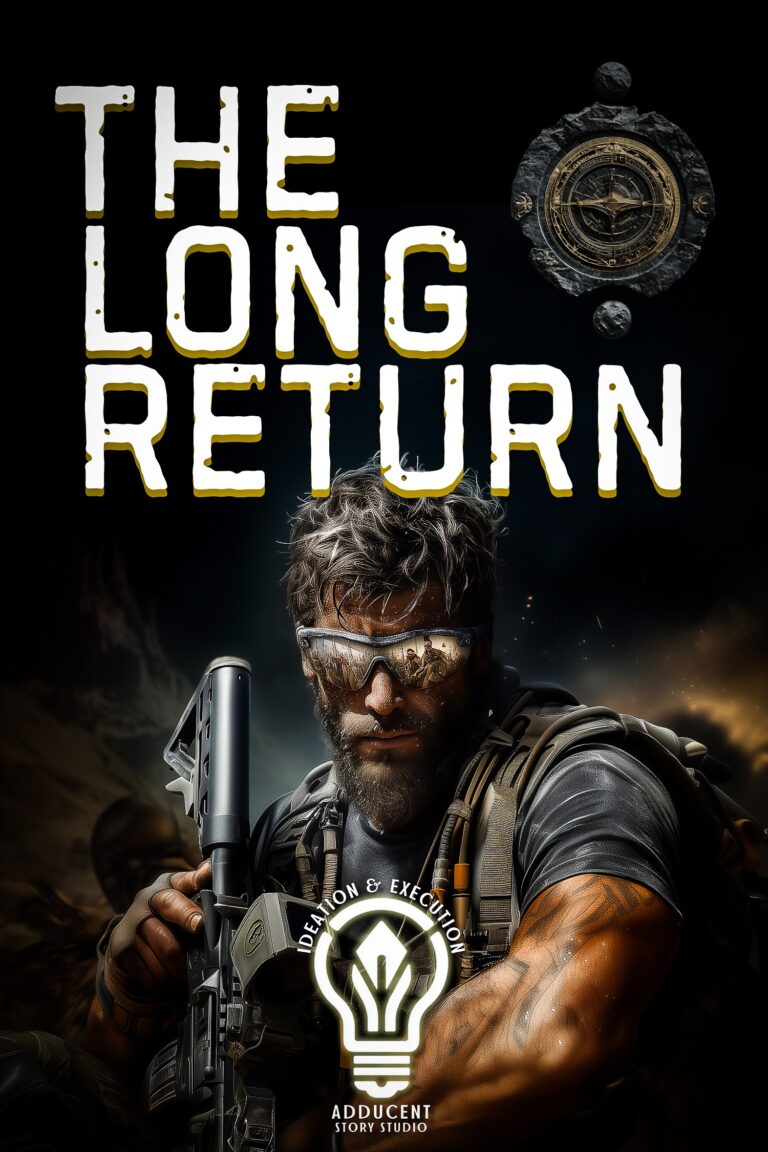
Blood, Memory, and War That Never Ends: The Long Return and the New Odyssey
IN DEVELOPMENT FOR 2026
THE LONG RETURN slips a blade between antiquity and modernity, myth and trauma, memory and recurrence, and twists it. It’s a story of war and return—but not in the conventional sense. It offers a haunting, centuries-spanning meditation on the cost of survival and the long shadows cast by violence across time, identity, and the soul.
This is a story for readers who were moved by the grim clarity of Steven Pressfield’s Gates of Fire, the tragic sweep of Tides of War, and the feral lyricism of Last of the Amazons—works that do not merely recount the past, but inhabit it, reanimate it, and let it bleed into the present. Yet where Pressfield walks shoulder-to-shoulder with his warriors through the hoplite phalanx and the agon of honor, THE LONG RETURN treads a stranger, more cyclical path—one reminiscent of the metaphysical underpinnings in Frank Yerby’s Goat Song, where the glories of heroism are undermined by the cruelty of fate and the prison of memory.
The story follows Daniel Cross, a modern soldier who begins to sense cracks in the structure of his life: déjà vu that runs too deep, scars he cannot remember earning, and a grief that seems inherited, adding new layers to it. As fragments of another life surface—a life from 3,000 years past, when he was Nikandros, a general from a forgotten war—Daniel’s journey spirals inward and backward. The novel dances on the line between reincarnation and haunting, myth, and metaphor, until that line dissolves entirely.
The story is measured and reflective, often elegiac, echoing the tone of Homeric poetry but filtered through the haze of post-traumatic introspection. Where Yerby’s Goat Song explored the philosophical disillusionment of the soul in bondage, THE LONG RETURN explores the soul in repetition—a warrior caught in recursive resurrection, each time losing more of himself, each time returning to a home that feels less like home. The novel asks: What happens to the idea of home when the man returning has outlived its meaning?
There is no simple catharsis here.
The story is neither a war memoir nor a hero’s redemption arc. Instead, it builds toward a revelation both horrifying and inevitable: that the curse of Nikandros was not death but survival—over and over again. And something ancient, nameless, feeds on each return.
Myth becomes mechanism. The Asphodel field, once a symbolic resting place for ordinary souls, becomes a recurring mirage of peace always out of reach. One sees shades of Dante’s Purgatorio, as well as Kazantzakis’s The Last Temptation of Christ—not in doctrine, but in spiritual exhaustion.
Where Pressfield’s heroes meet fate with grit and steel, THE LONG RETURN’s protagonist meets it in shards—pieced together across time, assembling not a heroic legacy but a broken soul’s dossier. And yet, the result is no less powerful. The warfare is quieter here, both internal and external. But its toll, spread across lifetimes, feels more tragic than any battlefield death.
Comparative Notes:
- Like Pressfield, the story deeply respects the inner lives of warriors but explores not their moments of glory but their residues—what lingers in the bloodstream of civilization.
- Like Yerby, it recognizes that myth is both salvation and trap—a way to remember the dead and a way to bind the living to stories that won’t let them go.
- Readers of David Malouf’s Ransom or Pat Barker’s The Silence of the Girls will also find kindred thematic spirits here: the deconstruction of Homer, not in opposition, but in longing.
- One might also find resonance with modern mythopoeic novels like Madeline Miller’s Circe or Neil Gaiman’s American Gods, but THE LONG RETURN is grittier, less dreamlike, more requiem than fantasy.
Conclusion:
THE LONG RETURN is not just a war story—it is about the recursion of war, about how violence lives in memory, blood, and scars. It is about a homecoming that becomes unmoored in time, a soul that becomes myth, and a myth that becomes the engine of something parasitic and eternal. With this work, THE LONG RETURN offers not a retelling of The Odyssey but its reckoning—a modern katabasis, not down into Hades, but into history, trauma, and the silent field where memory feeds.
It’s haunting, elegant, and devastating.
